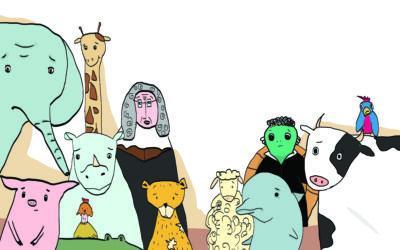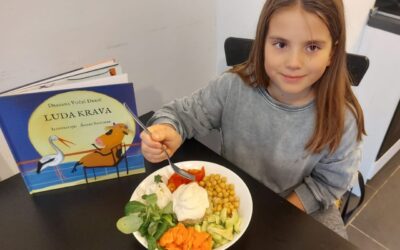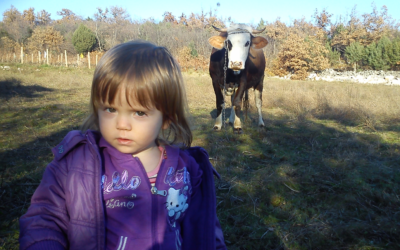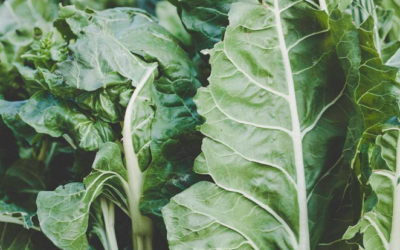The question of whether it is ethical or not to introduce and sustain a vegan diet for children is a highly contentious topic in the realm of vegan nutrition. Let us delve into some fundamental aspects of this subject: the child’s autonomy and the role parents play in making decisions on their behalf, as well as the perspective of scientific research.
Animals in Children’s Literature: Characters, Companions, and Friends
Animals have become integral to various aspects of children’s lives, enriching their experiences and nurturing their imagination. Children are exposed to animals through a wide range of mediums, such as literature, movies, music, and toys. Furthermore, many children have pets, establishing a special bond and fostering a sense of responsibility and companionship.
The ethics behind veganism
People choose to go vegan for many reasons, including health, environmental concerns, and animal welfare. The philosophical underpinning of veganism is rooted in the belief that animals possess inherent worth and value as sentient beings. This belief stems from the idea that animals have the capacity for experiencing pleasure, pain, and a range of emotions, and therefore deserve to be treated with dignity, respect, and compassion.
The relationship between a man and a donkey in the movie “The Banshees of Inisherin”
The relationship between a man and a donkey in the film “The Banshees of Inisherin” showcases several important lessons that we can learn from. One of the key takeaways from this relationship is the value of companionship. The presence of Jenny, the miniature donkey, provides comfort and support to Pádraic, who is facing a difficult situation with his best friend Colm. Jenny follows Pádraic around dutifully and offers him much-needed moments of relief, highlighting the importance of having a trusted companion to lean on during tough times.
Why pigs and cows are just as valuable as dogs and cats?
Speciesism is the belief that some species are inherently more valuable or deserving of moral consideration than others, and is used to justify the exploitation and mistreatment of animals. Just like racism, sexism, and other forms of prejudice, speciesism is a discriminatory belief system that unjustly values one group over another. It perpetuates inequality and violates the basic principles of justice and equality.
Raising a Vegan Child: Balancing Identity and Social Integration
Raising a vegan child often present unique challenges, particularly when it comes to social and peer pressure. It’s true that children often have a strong desire to fit in with their peers, and being a vegan can sometimes make them feel isolated or different. However, it is the role of parents to prepare their children for these situations and help them develop the confidence and communication skills they need to effectively advocate for their beliefs.
An empathetic and ecological view of hunting
Critics argue that hunting is immoral because it requires intentionally causing harm to innocent creatures. Even those who do not believe that animals should have legal rights acknowledge that many animals are sentient, meaning they have the capacity to experience pain. If it is wrong to cause unwanted pain and death to a sentient being, then hunting is also wrong.
How to Talk About Veganism with Non-Vegans?
Communicating the vegan message can be difficult as many non-vegans are defensive about their eating habits. It is important to choose words carefully and be aware of the emotions that can be triggered when talking about veganism. It is important to know when to spread the vegan message and when to avoid it. Family gatherings and hanging out with non-vegan friends is not always the best forum for advocating animal rights.
5 main sources of plant-based protein for vegan children
It is a common misconception that vegans lack protein in their diet, but this belief is not supported by scientific evidence. In fact, many plant-based foods are rich in protein and can easily provide the necessary amount of protein for a healthy diet. This outdated belief likely stems from a lack of knowledge about plant-based protein sources and the belief that animal-based protein is the only source of high-quality protein. Vegan children can get adequate protein from these plant-based foods:
What should children learn in schools about cow’s milk?
The educational system is riddled with contradictions, teaching students that meat and dairy are necessary for a healthy lifestyle while also promoting compassion and care for animals. These conflicting messages make it difficult for students to reconcile the idea of treating animals humanely with the consumption of animal products. In schools, children are often taught that cow’s milk and dairy products are a necessary source of calcium and protein for growth and development. However, this belief is not supported by scientific evidence. Instead of adhering to outdated beliefs, schools should focus on teaching children an ethical attitude towards animals and the harm that consuming milk and milk products can have on both human health and the environment.
How to introduce veganism to preschool-aged children
Talking about veganism with preschool-aged children can be a bit more challenging compared to talking about it with older children or teenagers. This is because, at this age, children are still developing their cognitive and language skills, and may not yet have the capacity to fully understand complex concepts. It is important to talk about veganism with children in an emotionally and intellectually appropriate way.
“Plants are alive and have feelings, so why do you eat them?”
“Plants are alive and have feelings, so why do you eat them?” It’s a question that vegans often hear. Meat eaters often accuse vegans of being hypocritical for consuming plants, arguing that plants are living organisms that have feelings and that it is also wrong to harm or kill them for food. However, this argument misunderstands the ethical considerations that inspire the vegan lifestyle.












